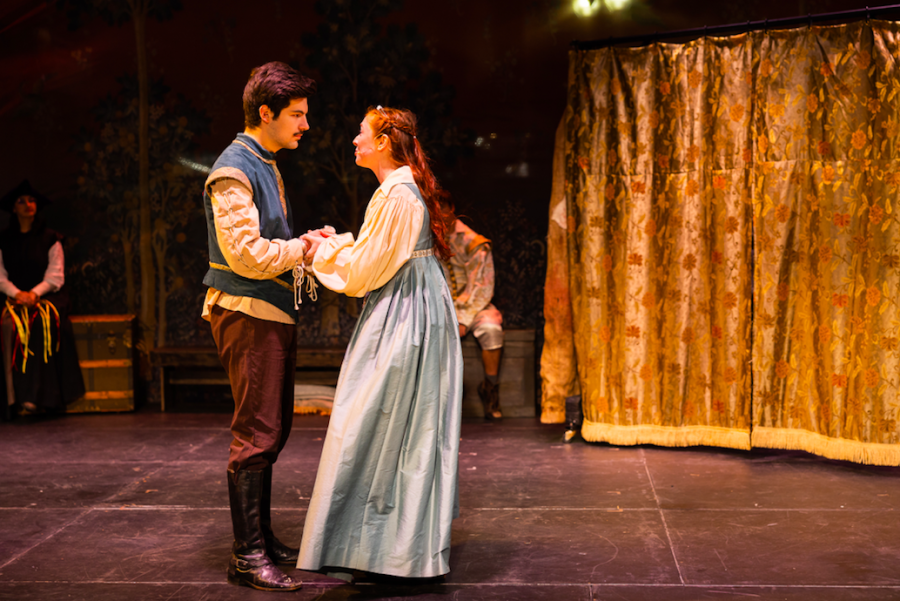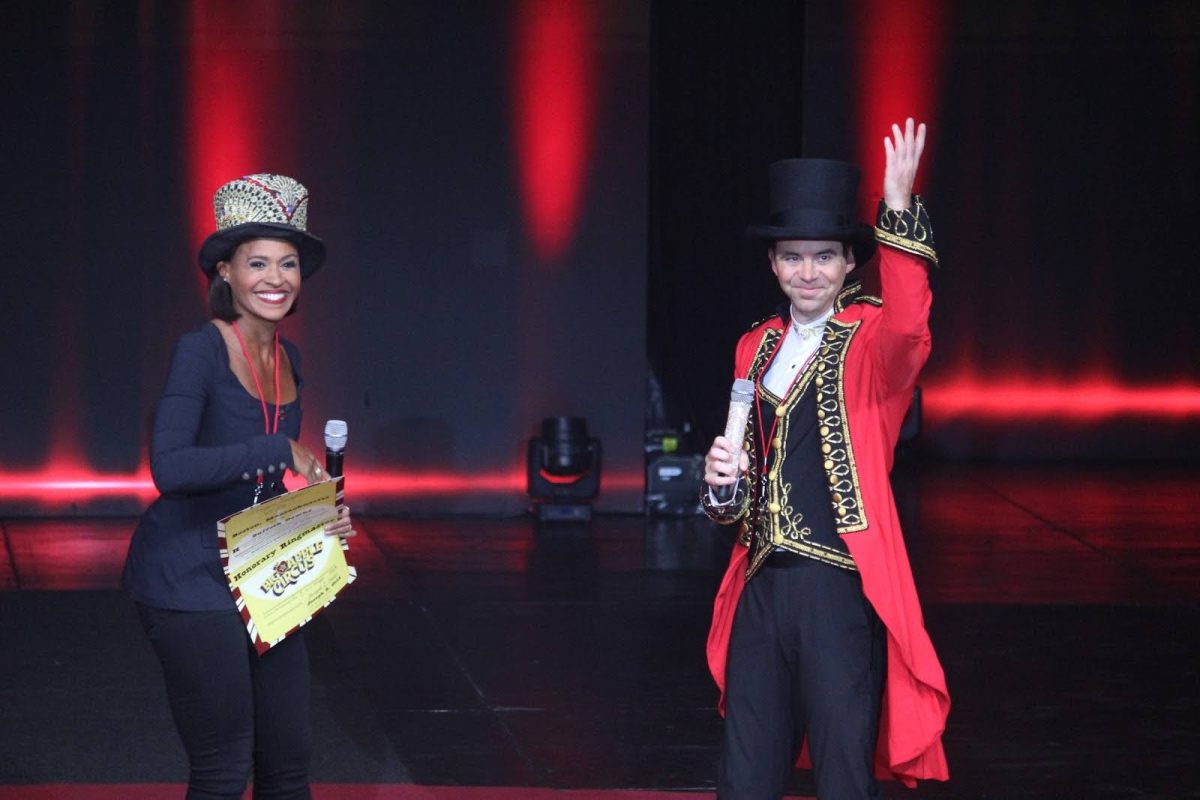Suffolk University’s theatre department took their stage to the streets of Boston with their performance of William Shakespeare’s “Cymbeline.”
The Steps at Downtown Crossing were full on Oct. 22, one of the four nights of the performance. Audience members had to pre-purchase tickets and wear a mask throughout the show.
As actors began the first act, the realities of being in a public and loud area of Boston on Friday a night set in. The street noise made it difficult to hear the actors, even though they were wearing microphones. The noise, paired with the difficulty of understanding Shakespeare, left the audience scrambling to keep up.
This play had a host of elements that have been seen in Shakespeare’s other works. From poison to falsely thinking a loved one had died, the play allowed Shakespeare to replay his greatest hits.
Though the noise was overwhelming, the actors rose above it and never flinched, no matter what was thrown at them. The actors lined the stage when they weren’t performing on it. They began to fade into the background as the plot progressed.
Emma Hudd, who played Imogen, King Cymbeline’s daughter, did a great job at showing the depth of the character and making her come to life. From humor to sadness, the actor did a great job at keeping the audience engaged.
One of the actors who really stole the show was Vincent Douglass, who played Iachimo. Iachimo makes it his task to prove that Imogen is not as loyal as her husband, Posthumus Leonatus, played by Alex Gorski, believes her to be. When on stage, it was difficult to focus on anything other than Douglass and his performance.
As is often the case in Shakespeare’s plays, the side characters are the ones who add humor and depth to the plot. During “Cymbeline,” the cast of characters was strong with even the smallest of roles. One character was seen knitting a scarf out of frustration, with the scarf growing longer each time she was seen.
As the play began to wind down, Cymbeline, played by Rose Beardmore, took to battle. Beardmore, who played the king as a stoic figure, stepped into a makeshift horse costume to “ride” into battle. The humor laced throughout the play with the use of props kept the audience laughing.
In the end, the characters have a moment of realization like in many of Shakespeare’s other plays. The truth is revealed and it is evident that the characters could have saved themselves quite a bit of trouble by just communicating with each other.
The theatre department did an excellent job providing students with the opportunity to take to the stage after a long hiatus from in-person performances. They also brought the play to an audience in a safe and thoughtful way.
Follow Ashley on Twitter @Ashleyfairchi14.






















